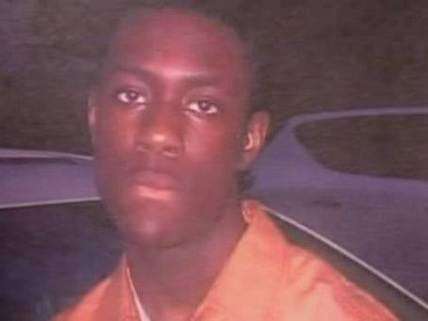U.S. Attorney's Office Refuses to Talk About Ramarley Graham Investigation or About the Process of Investigating Deaths in Police Custody in General

This morning I called the U.S. Attorney for the Southern District of New York, the office responsible for investigating the death of Ramarley Graham, a teenager shot by an NYPD officer who was chasing him over the alleged purchase of a small amount of marijuana. Graham was killed in February 2012. A grand jury indicted the officer, Richard Haste, but a judge threw the indictment out because he said the prosecutor failed to tell jurors about the cop's claim that other cops told him Graham was armed. A second grand jury declined to indict.
Last August, the U.S. Attorney for the Southern District of New York announced they would be reviewing the case. More than a year later, this September, they confirmed an investigation was under way. Meanwhile, Attorney General Eric Holder announced yesterday that the U.S. Attorney for the Eastern District of New York would be looking into the death of Eric Garner. The general increase in the attention paid to stories of police violence since Graham's death in 2012 and the earlier conclusion to the local prosecutorial process related to Garner's death means there's not a year and a half pause between the incident and the Department of Justice (DOJ) looking into it.
These investigations take time and the DOJ is tight lipped about them. A spokesperson for the U.S. Attorney for the Southern District refused to provide any comment about the Ramarley Graham investigation or about investigations of deaths in police custody in general. Each case may be different, and the kind of blanket refusal to comment is almost certainly the standard here, but as more and more people clue in to how systemic the problem of police violence is, the DOJ ought to consider being more transparent about these investigations. The department's done a relatively good job initiating pattern and practice and other civil rights investigations into the actions of police departments around the country, and Americans deserve to know more about how federal oversight of local police actions looks and works.
Reason's annual Webathon is underway! Your (tax-deductible!) gift will help Reason magazine, Reason.com, and Reason TV bring the case for "Free Minds and Free Markets" to bigger and bigger audiences. For giving levels and associated swag, go here now.
Editor's Note: As of February 29, 2024, commenting privileges on reason.com posts are limited to Reason Plus subscribers. Past commenters are grandfathered in for a temporary period. Subscribe here to preserve your ability to comment. Your Reason Plus subscription also gives you an ad-free version of reason.com, along with full access to the digital edition and archives of Reason magazine. We request that comments be civil and on-topic. We do not moderate or assume any responsibility for comments, which are owned by the readers who post them. Comments do not represent the views of reason.com or Reason Foundation. We reserve the right to delete any comment and ban commenters for any reason at any time. Comments may only be edited within 5 minutes of posting. Report abuses.
Please to post comments


If you believe that "more and more people [are] clue[ing] in to how systemic the problem of police violence is" then I have a bridge to sell you.
"A grand jury indicted the officer, Richard Haste, but a judge threw the indictment out because he said the prosecutor failed to tell jurors about the cop's claim that other cops told him Graham was armed."
I would leave it to the grand jurors to insist on getting the full story from the prosecutor - eg, "did Haste think Graham was armed?" "Well, OK, here's some evidence he may have thought so." And if the prosecutor doesn't cough up the requested info, disbar him and put him in prison - and the grand jury should always be able to un-indict someone if they conclude they made a mistake.
But having the trial court supervise the grand jury would relieve the grand jurors of what ought to be *their* responsibilities.
But if the grand jurors are gullible enough to swallow what the prosecutor spoon-feeds them, then let the trial sort it out.
Why was this fool running if all he had to worry about was a "small amount" of contraband?
Six months ago I lost my job and after that I was fortunate enough to stumble upon a great website which literally saved me. I started working for them online and in a short time after I've started averaging 15k a month... The best thing was that cause I am not that computer savvy all I needed was some basic typing skills and internet access to start... This is where to start...
?????? http://www.payinsider.com